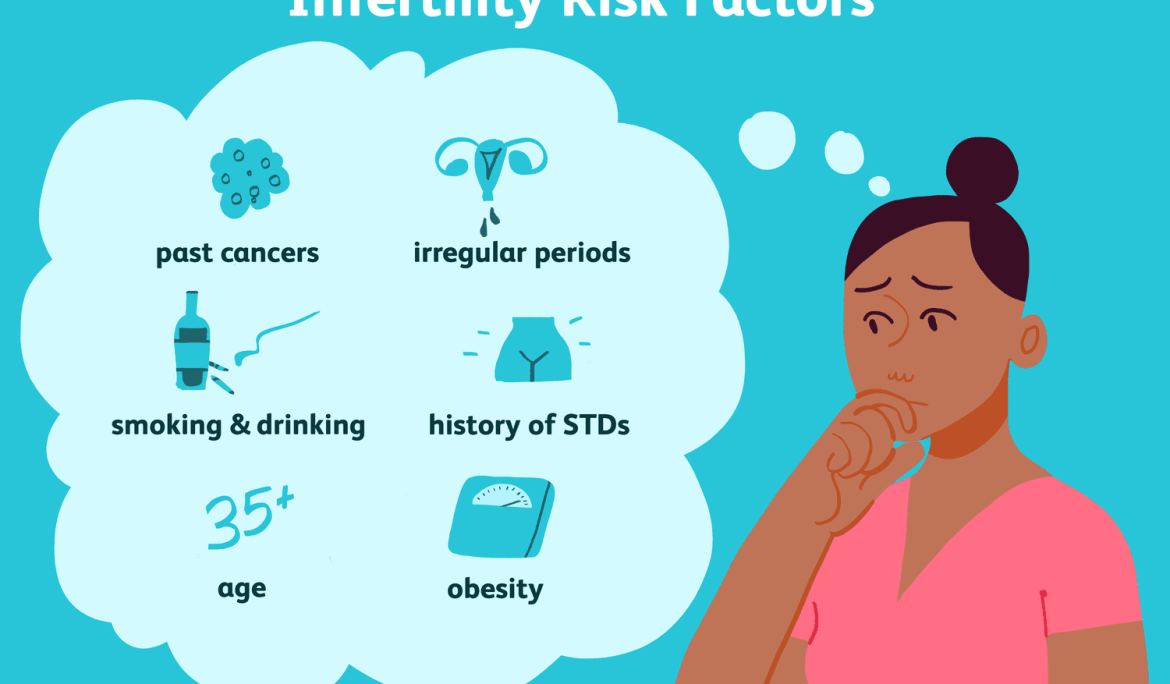Introduction: Infertility is a deeply personal and often challenging journey that many couples face. In a world where the desire for parenthood is natural and profound, the inability to conceive can evoke a range of emotions, from frustration and sadness to confusion and despair. However, amidst the struggles, there lies a landscape of understanding, hope, and numerous paths to parenthood.
Defining Infertility: Infertility is commonly defined as the inability to conceive after one year of regular, unprotected intercourse for individuals under 35, or six months for those over 35. It can also refer to the inability to carry a pregnancy to term. This condition affects millions worldwide, transcending age, race, and socio-economic status.
Understanding the Causes: Infertility can stem from a myriad of factors, both physiological and psychological. In women, common causes include ovulation disorders, endometriosis, tubal blockages, and age-related decline in fertility. For men, issues such as low sperm count, poor sperm motility, and genetic abnormalities may contribute to infertility. Additionally, lifestyle factors like stress, diet, and environmental toxins can influence fertility in both sexes.
The Emotional Toll: Infertility often takes a significant emotional toll on individuals and couples alike. The rollercoaster of hope and disappointment, coupled with societal pressures and stigma, can lead to feelings of inadequacy, isolation, and grief. Mental health challenges such as anxiety and depression are not uncommon among those grappling with infertility, underscoring the importance of holistic support.
Breaking the Silence: One of the most profound challenges of infertility is the silence that often surrounds it. Societal expectations and taboos around reproduction can leave individuals feeling hesitant to discuss their struggles openly. However, breaking the silence is a crucial step towards destigmatizing infertility and fostering a culture of empathy, understanding, and support.
Seeking Support: Navigating infertility can feel overwhelming, but no one should have to face it alone. Seeking support from loved ones, fertility specialists, therapists, and support groups can provide invaluable emotional, informational, and practical assistance. Creating a supportive network can help individuals and couples cope with the challenges and uncertainties of the journey ahead.
Medical Interventions: Advances in reproductive medicine have opened up a wealth of possibilities for individuals and couples facing infertility. Assisted reproductive technologies (ART), including in vitro fertilization (IVF), intrauterine insemination (IUI), and gamete donation, offer options for conception when natural methods prove unsuccessful. These interventions have revolutionized the landscape of infertility treatment, offering renewed hope to many.
Exploring Alternative Paths: While ART may be the right choice for some, others may opt for alternative paths to parenthood. Adoption, surrogacy, and fostering are all viable options for building a family, offering fulfilling and loving environments for children in need of homes. Each path comes with its own unique challenges and joys, but all share the common goal of creating loving families.
Holistic Approaches: In addition to medical interventions, holistic approaches to fertility can play a significant role in optimizing reproductive health. Mind-body practices such as yoga, meditation, and acupuncture can help reduce stress levels and promote hormonal balance. Nutrition and lifestyle modifications, including a healthy diet, regular exercise, and avoiding harmful substances, can also enhance fertility potential.
Coping with Uncertainty: The journey through infertility is often marked by uncertainty, with no guarantees of success. Learning to cope with the unpredictability of the process is essential for maintaining emotional well-being. Cultivating resilience, practicing self-care, and focusing on the present moment can help individuals and couples navigate the ups and downs of infertility with greater ease and grace.
Embracing Parenthood in Unexpected Ways: While the road to parenthood may not unfold as planned, it can lead to unexpected and profound blessings. For some, infertility sparks a journey of self-discovery, strengthening relationships, and finding purpose beyond biological parenthood. Embracing parenthood in unexpected ways can open hearts and minds to the diverse and beautiful tapestry of family-building.
Educating and Advocating: Raising awareness about infertility and advocating for access to fertility care are crucial steps towards fostering a more inclusive and supportive society. Education about reproductive health, family-building options, and the emotional impact of infertility can help dispel myths and misconceptions. Advocating for affordable and equitable fertility care ensures that all individuals have the opportunity to pursue their dreams of parenthood.
Conclusion: Infertility is a complex and multifaceted journey, marked by challenges, triumphs, and profound moments of growth. While the path may be fraught with uncertainty, there is always room for hope, resilience, and love. By fostering open dialogue, seeking support, exploring all available options, and embracing the unexpected, individuals and couples can navigate infertility with courage, grace, and resilience, ultimately finding their own paths to parenthood.#hospital #pune #pcmc #chinchwad#health #healthcare #gynaecologist #femalegynaecologist #gynaecologistappointment #gynac #gynaecologistdoctor #gynaecologisthospital #goodgynaecologist #gynaecologistspecialist #infertility #fertilityclinic #ivf #fertilitytest #fertilityspecialist #ivftreatment













